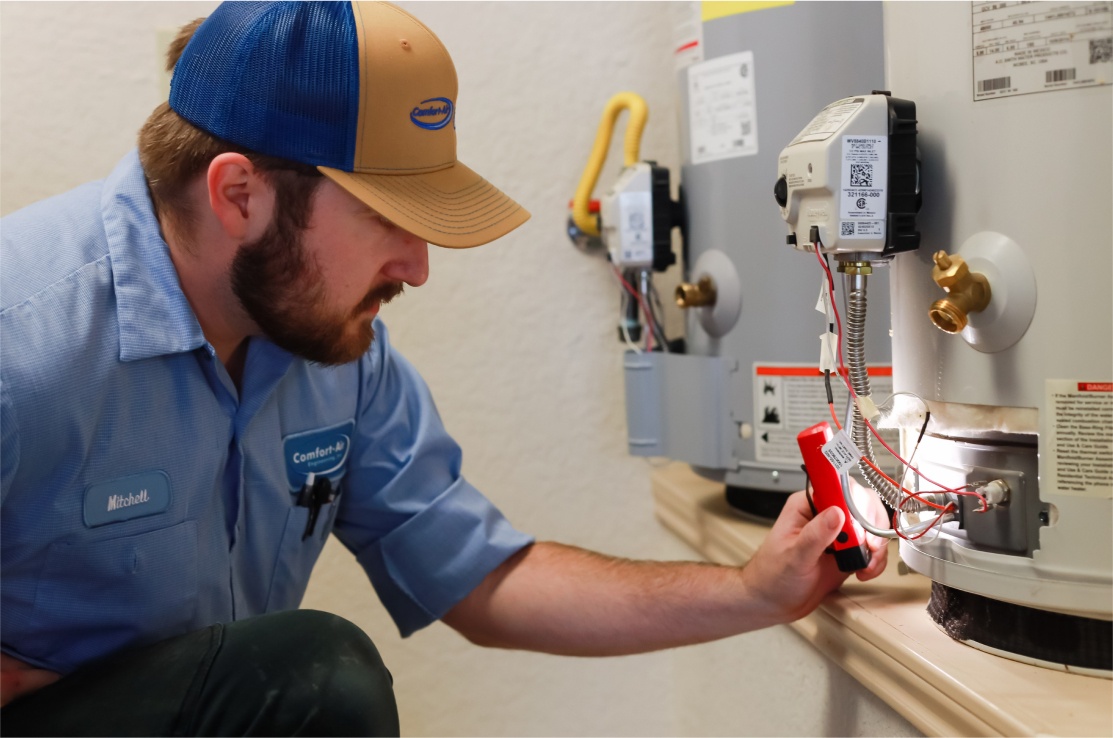
How to Become an HVAC Technician

Are you wondering how to become an HVAC technician and start a career that gets you out of the office and into the field, working with your hands? Looking for a highly skilled and educated program that is always in demand? Curious about how you can one day own your own business?
One of the more lucrative and technically skilled labor careers on the market is in the HVAC field. Becoming a certified HVAC technician is a perfect way to enter an industry that’s always evolving, growing, and in demand.
Homeowners want cool air in the summer and heat in the winter, and with the right education and skill set, you can have a long-term career that’s needed in every season. So what does it take to make it in the industry? Read on to learn a little bit more about becoming an HVAC technician.
Steps to Getting Your HVAC Certification
 Before you can start working on anyone’s air conditioning, you’re going to need the license and certification to be qualified for the job.
Before you can start working on anyone’s air conditioning, you’re going to need the license and certification to be qualified for the job.
Once you have your high school diploma or GED, you can enroll in a technical college.
These schools offer a career path education that gives you the foundational skills needed, training, and in many cases, hands-on experience with an established HVAC company.
Many of these programs take about one or two years to complete and give you the knowledge you need to pass your certification and licensing exam. Before you can get a job in the industry, a license is required to comply with local and state codes.
It’s always a good idea to learn exactly what’s needed in your local area. While some licenses are state-wide, you can up your chances of placement with a national certification.
A Day in The Life of an HVAC Tech
As an HVAC technician, your main job will be repairs and installations. More often than not, your potential customer will call you in an emergency situation – their air condition could be blowing hot or not turning on at all.
Your role is to diagnose the problem, find a long-lasting solution, and perform the repairs needed. Some of the more common calls will include:
- Air conditioner cleaning (air filter replacement).
- Frozen condenser coils (causing water leaks).
- Low freon levels and recharges.
- Old air conditioners.
- Electrical failures.
- Damaged or leaking air ducts.
- Thermostat replacements.
The more experience you have, the more opportunities you have for work. The exciting aspect of HVAC is that it evolves and upgrades with the time. For many newer technicians, you’ll be working in home automation and wireless controllers, all aimed at creating the perfect indoor oasis.
What Tools do You Need?
 The HVAC industry is very technical, as are the tools needed to get the job done.
The HVAC industry is very technical, as are the tools needed to get the job done.
All technicians should start out with standard tools that include pliers, screwdrivers, drills, and assorted bits, freon gauges, stud finders, safety goggles, and gloves.
Once you get into the nitty-gritty of the job, you’ll find yourself investing in larger tools like welders and core removal kits, that are used during a full-scale installation process.
As an entry-level technician, you’ll more than likely have a fully-stocked truck to work with. This is another reason why apprenticeships are so important in the industry. It gives you the opportunity to learn while using the actual tools you’ll have in the field.
Continuing Education is Key to Success
 Finally, the most important skill any HVAC technician should have is a willingness to learn.
Finally, the most important skill any HVAC technician should have is a willingness to learn.
Not only is continuing education needed to keep your license in good standing, but also it gives you an opportunity to expand your skill base, which is essential to upward mobility in any situation.
Starting a career in the HVAC industry is rewarding and always in demand. Whether you’re interested or know someone who is, be sure to share this blog and do the research needed to get the ball rolling!






